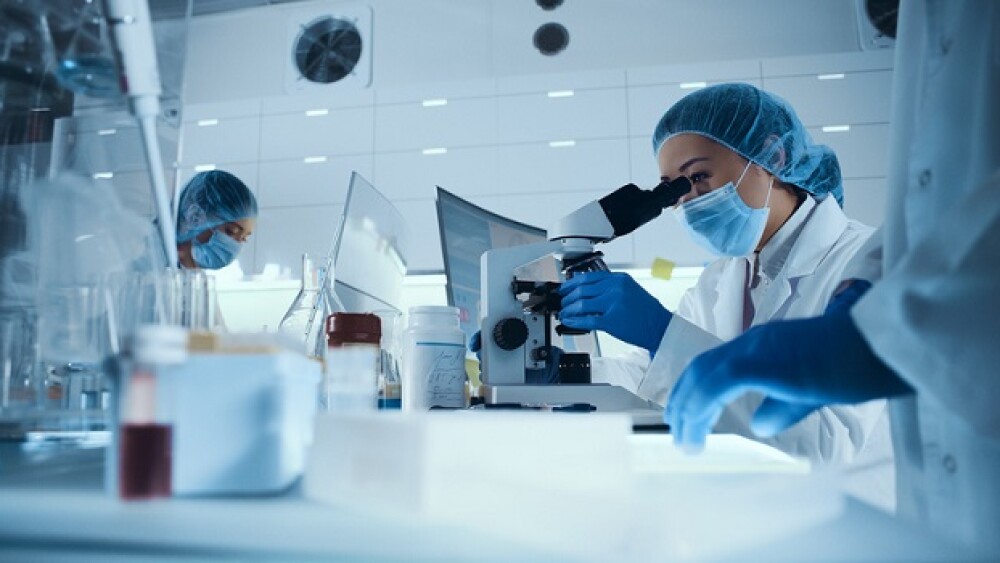Autolus Therapeutics is calling the Phase II FELIX trial, assessing its next-generation CAR-T therapy obe-cel for leukemia, a win after an interim analysis revealed an overall remission rate of 70%.
Image courtesy of Getty Images
Autolus Therapeutics is calling the Phase II FELIX trial, assessing its next-generation CAR-T therapy obe-cel for leukemia, a win after an interim analysis revealed an overall remission rate of 70%.
Friday, the London-based company touted the findings from a pre-planned interim analysis of 50 patients with relapsed/refractory adult acute lymphoblastic leukemia (ALL). The overall response rate is the primary endpoint of the trial.
Based on the data observed in the interim analysis, Autolus plans to file a Biologics License Application with the FDA by the end of 2023.
Full results from the FELIX trial will be presented at a medical conference in 2023, according to the company.
In a brief statement, Christian Itin, CEO of Autolus, said the BLA would be supplemented with additional longer follow-up data to support approval of obe-cel.
Obe-cel is an investigational CD19 CAR-T cell therapy Autolus officials hope will overcome some of the limitations seen in early-generation CAR-T treatments. The medicine is designed to bind quickly to the target to minimize toxicity concerns. This may also cause obe-cel to be less prone to T cell exhaustion.
This could enhance the therapy’s persistence and the ability of the programmed T cells to engage with the tumor.
In its announcement, Autolus reported researchers observed obe-cel’s expansion and persistence after a median follow-up of 6.4 months. The company noted that it is comparable to data observed in the ALLCAR19 study in 2022.
In that trial, Autolus reported that CAR-T cell concentration reached high levels at peak. Also, persistence in peripheral blood was 75% after a median of 166.5 days following infusion.
Beyond efficacy, Autolus reported positive safety findings, including:
- 3% of patients experienced grade 3 or worse cytokine release syndrome
- 8% of patients experienced Grade 3 or higher immune effector cell-associated neurotoxicity
- 23% of patients experienced any grade ICANS.
The safety analysis was based on 92 patients treated with obe-cel and evaluable for safety, the company said.
“Obe-cel’s high level of anti-leukemia activity combined with a well manageable tolerability profile is a significant step forward in this underserved disease setting, which is characterized by the explosive growth of leukemia and the poor condition of many patients,” Dr. Jae Park, an associate attending physician at Memorial Sloan Kettering Cancer Center, said in a statement. “The expansion and initial persistence of obe-cel are encouraging from a long-term outcome perspective.”
A Competitive Space
Last year, Kite, a Gilead Sciences company, won approval for its CAR-T for ALL, Tecartus. The support marked the first CAR-T treatment for this indication. Data for approval showed that 65% of patients achieved complete remission with Tecartus.
Safety data showed that Grade 3 or higher CRS occurred in 26% of patients and neurologic events occurred in 35% of patients. These issues were generally well-managed, according to the company.
In a statement, an Autolus spokesperson told BioSpace the ORR seen in the FELIX study is comparable to Kite’s CAR-T. So far, the safety profile for obe-cel appears to be stronger than Kite’s therapy.
Beyond positive data at the interim analysis, Autolus’ findings triggered a $35 million payment from Blackstone Life Sciences. Blackstone is also expected to provide another $35 million upon achieving manufacturing milestones for obe-cel.
Despite the positive news from the company this morning, shares of Autolus plunged in pre-market trading. The stock was down more than 35% before the opening bell.
In a separate announcement Friday, Autolus released an underwritten public offering of American Depositary Shares to secure an additional $150 million in financing.
Autolus’ stock is down 45% since the beginning of the year.





